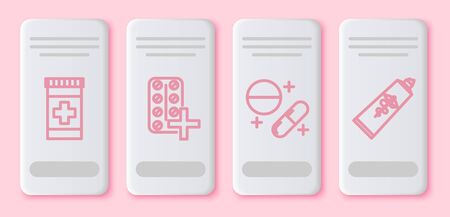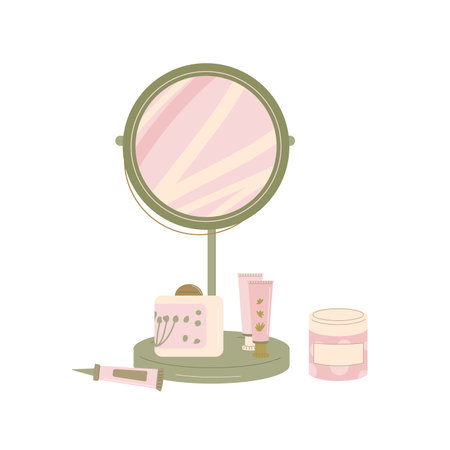1. Misunderstanding What True Hydration Means
When it comes to achieving that coveted, healthy glow, many people make the mistake of thinking hydration is all about slathering on a moisturizer or drinking water only when they feel thirsty. But true hydration goes far beyond these surface-level habits. Let’s clear up this common misconception and explore why both internal and external hydration are essential for radiant skin.
Internal Hydration: Drinking enough water throughout the day is crucial because your skin reflects what’s happening inside your body. Without proper hydration from within, your skin can appear dull, dry, and more prone to irritation—even if you use the fanciest products. Remember, coffee and sugary drinks don’t count toward your daily water intake; in fact, they can dehydrate you further.
External Hydration: On the flip side, focusing only on what you put on your skin isn’t enough either. External hydration through quality skincare—like hydrating serums and creams—helps lock in moisture and protect your skin barrier from environmental stressors. However, these products work best when your skin is already supported by adequate water intake.
The Bottom Line: Glowing, healthy skin is a result of both internal and external hydration working together. If you neglect one side of this equation, you’re likely sabotaging your own glow without even realizing it. To truly support your skin, make sure you’re nourishing it from the inside out and giving it the external care it deserves.
2. Relying Too Much on Topical Products
It’s tempting to believe that a good moisturizer or serum is all you need for glowing, hydrated skin. After all, the beauty aisles are packed with creams promising “intense hydration” and “dewy radiance.” But here’s the truth: slathering on hydrating products alone just won’t cut it if you’re aiming for long-lasting, healthy glow. Real hydration starts from within, and without addressing your internal habits, even the best topical treatments can fall short.
The Inside-Out Approach to Skin Hydration
Your skin is your body’s largest organ, and it reflects your overall health and hydration status. While topical creams help lock in moisture and create a barrier against external factors, they can only do so much if your body is dehydrated internally. Simply put: if you aren’t drinking enough water or eating a balanced diet, your skin may still look dull or feel tight—no matter how many fancy lotions you apply.
Why Internal Hydration Matters
| Hydration Method | How It Works | Impact on Skin Glow |
|---|---|---|
| Topical Products | Lock in existing moisture and protect skin barrier | Temporary smoothness; doesn’t address underlying dryness |
| Internal Hydration (Water & Diet) | Nourishes skin cells from within and supports natural repair processes | Lasting radiance; skin appears plumper and more vibrant |
Expert Tip:
If you want your favorite hydrating cream to work its magic, pair it with daily habits like drinking at least eight glasses of water, eating water-rich fruits and veggies (think cucumbers, oranges, and watermelon), and avoiding excessive caffeine or alcohol that can dehydrate your body.
Ultimately, the secret to glowing skin isn’t just about what you put on—it’s also about what you put in. By combining smart skincare with mindful hydration from within, you’ll give your skin every chance to shine.

3. Overusing Hot Water in Your Routine
If you love a long, steamy shower or tend to wash your face with hot water, you might be unintentionally sabotaging your skin’s hydration. While it can feel relaxing, hot water actually strips away your skin’s natural oils—the ones responsible for locking in moisture and keeping your complexion soft and dewy. When these oils are washed away, your skin barrier becomes compromised, making it harder to retain moisture and easier for dryness and irritation to set in.
Over time, this habit can leave your skin looking dull, dehydrated, and less radiant than you’d like. You might notice tightness after washing or even flakiness that no amount of moisturizer seems to fix. This is especially common during colder months when indoor heating already reduces humidity, compounding the effects of hot water on your skin.
To maintain your skin’s glow and hydration, try dialing down the temperature. Lukewarm water is much gentler—it cleanses effectively without stripping those essential oils. After cleansing or showering, gently pat your skin dry instead of rubbing, and follow up with a hydrating moisturizer while your skin is still slightly damp to lock in extra moisture. Making this simple switch can dramatically improve how your skin looks and feels—giving you back that healthy, luminous glow you’re after.
4. Neglecting Your Water Intake
When it comes to skin health, one of the most common yet overlooked mistakes is simply not drinking enough water. While topical moisturizers and serums help, true hydration starts from within. If you’re constantly forgetting to sip water throughout the day, your skin could be missing out on that natural glow you’re aiming for. Dehydration can make your complexion appear dull, emphasize fine lines, and lead to dryness or flakiness.
How Lack of Water Impacts Your Skin
| Issue | Impact on Skin |
|---|---|
| Dullness | Skin loses its radiant appearance and may look tired. |
| Dryness & Flakiness | Lack of internal hydration makes it hard for your skin to retain moisture, causing rough patches. |
| Fine Lines | Dehydrated skin accentuates wrinkles and fine lines. |
Simple Tips to Boost Your Daily Hydration
- Set Reminders: Use your phone or a smart water bottle to remind you to drink regularly—aim for at least 8 cups a day, but listen to your body’s needs.
- Add Flavor: If plain water isn’t appealing, infuse it with lemon, cucumber, or berries for a refreshing twist.
- Carry a Reusable Bottle: Keeping a bottle with you makes it easy to sip throughout the day, whether you’re at work or on the go.
- Hydrate With Meals: Make a habit of drinking a glass of water before every meal and snack.
The Bottom Line
If glowing skin is your goal, don’t underestimate the power of consistent hydration. Making small changes in your daily routine can have a big impact on how healthy and luminous your skin looks.
5. Missing Key Nutrients for Hydration
When we think about hydrated, glowing skin, most of us immediately focus on drinking enough water. While that’s essential, many people overlook the crucial role that certain vitamins and healthy fats play in maintaining optimal skin moisture. If your diet is lacking in these key nutrients, your skin might still feel dry and look dull—even if you’re sipping water all day long.
Why Vitamins Matter for Skin Hydration
Vitamins such as A, C, and E are powerhouses for skin health. Vitamin A helps with cell turnover and repair, vitamin C supports collagen production and helps retain moisture, while vitamin E provides antioxidant protection and supports the skin’s barrier function. Without enough of these nutrients, your skin can’t hold onto hydration as effectively, making it more susceptible to dryness and irritation.
The Essential Role of Healthy Fats
Healthy fats—especially omega-3 fatty acids found in foods like salmon, walnuts, and chia seeds—are vital for keeping your skin supple and locking in moisture. These fats help build a strong skin barrier, which prevents water loss and keeps irritants out. If you’re following a very low-fat diet or skipping these sources, you may be undermining your own hydration efforts.
Simple Ways to Boost Your Diet
- Add a handful of nuts or seeds to your morning oatmeal or yogurt.
- Include fatty fish like salmon or sardines in your weekly meals.
- Toss spinach or kale into smoothies for a vitamin A boost.
- Squeeze fresh lemon juice over salads to add vitamin C.
Tip: Balance Is Key
Remember, no single food will transform your skin overnight—but consistently including a variety of vitamins and healthy fats in your meals will support long-term hydration from within. By nourishing your body with what it truly needs, you’re setting yourself up for that natural glow every day.
6. Ignoring Environmental Factors
It’s easy to overlook just how much your environment can impact your skin’s hydration levels. Everyday situations like blasting the AC during a hot summer, cranking up the heater in winter, or spending hours on a long-haul flight can all sap moisture from your skin. Air conditioning and heaters both reduce humidity in the air, which makes it harder for your skin to retain its natural moisture. Meanwhile, airplane cabins are notorious for their low humidity, often leaving you feeling parched inside and out.
How These Factors Affect Your Skin
When you’re exposed to these dry environments, your skin tends to lose water more quickly than usual. This can lead to tightness, flakiness, and an overall dull appearance—even if you’re diligent about drinking water and applying moisturizer at home. Many people don’t realize that environmental exposure is a major culprit behind lackluster, dehydrated skin.
What You Can Do About It
- Keep a travel-sized hydrating mist handy: Spritzing your face throughout the day can help replenish lost moisture without disturbing your makeup.
- Layer lightweight serums: Look for products with hyaluronic acid or glycerin, which attract and lock in water molecules.
- Use a humidifier: Especially at night, adding moisture back into the air can work wonders for your skin while you sleep.
- Seal it in: After applying moisturizer, use a facial oil or balm as an extra barrier to help prevent water loss when you know you’ll be in dry conditions.
Your Takeaway
If you want to keep your skin glowing and hydrated, pay attention to more than just what goes into your body—think about what’s happening around you, too. Making small adjustments based on your environment is an easy but powerful way to maintain radiant skin no matter where life takes you.


